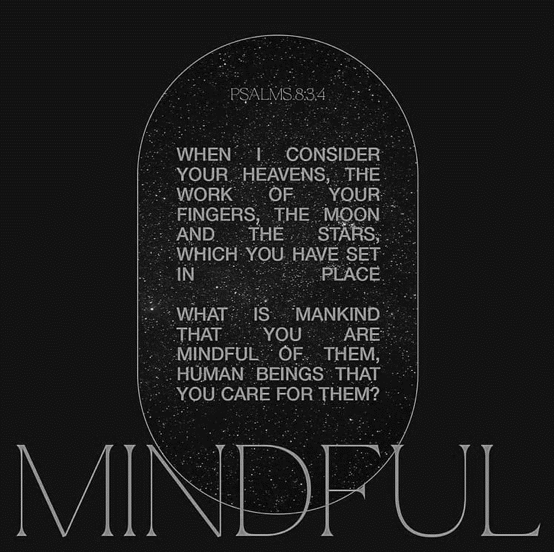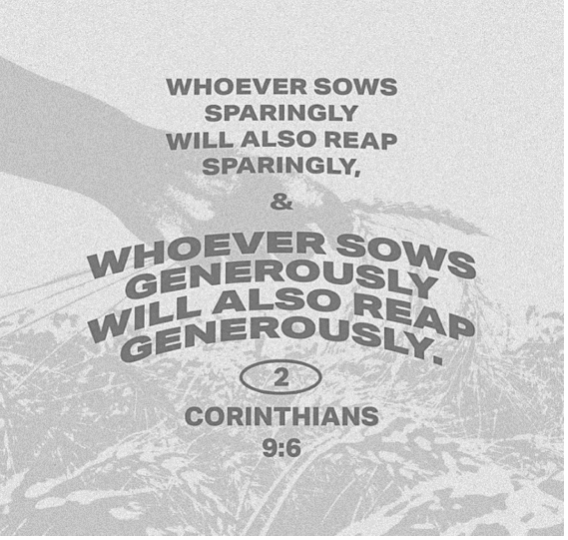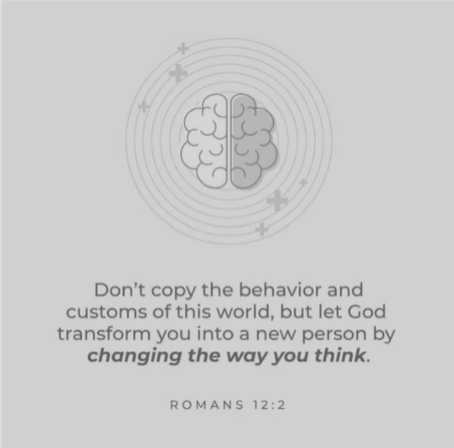
Praying God’s Blessings & Peace Upon You during 2024!
Love,
Your LOOP Friends
18 “But forget all that—it is nothing compared to what I am going to do.19 For I am about to do something new.See, I have already begun! Do you not see it?I will make a pathway through the wilderness.I will create rivers in the dry wasteland.” Isaiah 43:18-19, NLT
Know someone who would like to receive the LOOP mailing? Please have them contact us:
Jenny Eversole-VCC/LOOP
18187 Palmer Road
Etna, OH 43068
New Year’s Resolutions
by Dr. Ralph F. Wilson
“I never make New Year’s Resolutions, anymore,” the man told me, “I never keep them, anyway.” I can remember all too many resolutions I’ve made and let slip away, too. But I believe New Year’s resolutions are worth making. Let me tell you why.
First, we all need changes. Some we find very hard to admit to ourselves. I’ve heard people who say, “I have no regrets about my life. If I had it to do over, I’d do it the same way again.” But that attitude is way too blind and self-serving so far as I’m concerned. There is great power in confession–to ourselves, to God, to others. Owning up to our failures is the first, painful step on the road to something better.
Second, when we change calendars is a good time for reassessment. How did last year go? What do I want to do differently this year? This time of year always reminds me of a passage of scripture, better understood by farmers than suburbanites: “Break up your unplowed ground, and do not sow among thorns” (Jer 4:3). It makes sense. The more land you put into production, the more prosperous you’ll be. But some of us are stupid enough to try to sow seeds in land overrun by star thistle without breaking up the soil and taking care to root out the thorns as they come up. Call it laziness. Call it stupidity.
Let me ask you a serious question. What percentage of your life is producing something of value to God? How much “unplowed ground” do you have that ought to be broken up in this coming year and made useful? Reassessment. The brink of a new year is a good time for reassessment.
Third, New Year’s is an excellent time for mid-course corrections. Sure, we might fail in what we set out to do, but if we fail to plan, the old saw goes, then we plan to fail. If you’re so fearful of failure that you never set up your row of tin cans to shoot at, you’re not very likely to hit any at all. Failure is not the end. For the person who determines to learn from it, failure is a friend.
One of my heroes in the Bible is the Apostle Paul. Talk about failure! Throughout his life he was opposed, persecuted, shipwrecked, stoned and left for dead, deserted by trusted co-workers, slandered, and scorned. Sometimes it seemed that projects to which he had devoted years were turning to dust before his eyes. But during from one of his stints in prison, we can see from one of his letters an unwillingness to quit. “Forgetting what is behind,” he wrote, “and straining toward what is ahead, I press on toward the goal to win the prize for which God has called me heavenward in Christ Jesus” (Phil 3:13-14, NIV) No wonder he made a mark on his world. He stopped looking back, and looked forward instead. He didn’t let the fear of failure keep him from trying again.
Fourth, New Year’s is a time to learn to rely more heavily on the grace of God. Now I’ve met a few self-made men and women and so have you, but so often these people seem proud and driven. There is another way: beginning to trust in God’s help. One more secret from the Apostle Paul: “I can do everything through Him who gives me strength,” he said (Phil 4:13, NIV). And God’s strength saw him through a lot–through pain, through joy, and through accomplishment.
If this last year, you didn’t practice relying on the Lord as much as you should have, there is no time like the present to make a New Year’s resolution. In fact, why don’t you say a short prayer right now–use these words if you like: “Dear God, I want the new year to be different for me.” Now spell out in prayer some of the changes you’d like to see. And close this way: “Lord Jesus, I know that I’m going to need a lot of help for this. So right now I place myself in your hands. Help me to receive Your strength. Amen.” Good. Now you’ve got a much better chance of a Happy New Year.
A New Year’s Paradigm Shift — Soaring not Struggling (Isaiah 40:28-31)
by Dr. Ralph F. Wilson
This day before the New Year, I spent an hour at our local CrossFit gym. I think I’m the oldest guy who comes to this gym. The men all seem buff and strong. The barbells they lift are loaded up with weights. My weights are light. They ran 800 meters today, which I can’t do, so I used the rowing machine. You get the picture. Weak vs. strong.
So Isaiah 40:28-30 speaks to me. It shows the striking contrasts between strength and weakness, power and faltering. Verses 28-29 compare Yahweh’s strength to human strength.
“Have you not known? Have you not heard? The LORD is the everlasting God, the Creator of the ends of the earth. He does not faint or grow weary; his understanding is unsearchable.” (Isaiah 40:28)
Yahweh has no limitations. Time doesn’t faze him — he is everlasting. Chronological time means something to us, but isn’t important in God’s frame of reference. He isn’t diminished by getting old. He creates, he knows everything, his energy never diminishes.
This morning, part my workout was to do 50 push presses, lifting the barbell over my head 50 times. I could only do 10 to 15 at a time; then I had to rest. If weights were any heavier, I wouldn’t get to 50 at all. My strength gives out.
But our passage goes on to say that Yahweh transfers his limitless strength to us.
“He gives power to the faint, and to him who has no might he increases strength.” (Isaiah 40:29)
The text says that even the buff men and women in the gym will get to the point where their strength is utterly spent. They’ll reach their limit.
“Even youths shall faint and be weary, and young men shall fall exhausted.” (Isaiah 40:30)
But here comes the promise that doesn’t depend upon my age or relative strength or endurance.
“They who wait for the LORD shall renew their strength; they shall mount up with wings like eagles; they shall run and not be weary; they shall walk and not faint. (Isaiah 40:31, ESV)
They who “wait upon the Lord” will find their strength renewed. “Hope in” (NIV) or “wait for” (NRSV, ESV), “wait upon” is qāwâ, “wait, look for, hope.” The root means “to wait or to look for with eager expectation.” Waiting with perseverance expresses our faith that God will save his people.
As we turn our faith towards him, he strengthens us. “Renew” is ḥālap, which in the Hiphil stem has the idea of “change, exchange, replace.” There is a sense in which we exchange our weakness for his strength as we wait expectantly for him to act.
The promise is that in the Lord we will renew our strength, just as David “strengthened himself in the Lord his God” (1 Samuel 18:6b, NRSV). The prophet gives us wonderful images of soaring, running, and walking effortlessly. Praise the Lord!
Verse 31 shows us an eagle soaring. If you’ve ever watched eagles or vultures with their great wings, they hardly have to flap their wings. They just move their wings ever so slightly to catch the wind. They can stay up for hours. In the gym, the only way to gain altitude is to climb a rope. The heavier you are, the harder it is to climb. Imagine climbing up to the 500 feet or higher where eagles soar. Unless you have extreme upper body strength, you’ll never make it.
But Isaiah is offering a completely different paradigm. Instead of the physical strength of young people in their prime, he suggests taking off flying like a bird. The secrets of aerodynamics are designed into a bird’s wing or an aircraft’s lifting capability. It’s counterintuitive. You move forward along the ground and are lifted up in the process.
God’s offer of strength here is also counterintuitive. You wait on him in faith, you trust him, and his strength is transferred to you. Your weakness is replaced by his strength.
Jesus invites us to enjoy this phenomenon of replacing our weakness with his limitlessness.
“Come to me, all who labor and are heavy laden, and I will give you rest. Take my yoke upon you, and learn from me, for I am gentle and lowly in heart, and you will find rest for your souls. For my yoke is easy, and my burden is light.” (Matthew 11:28-30)
He contrasts the heavy yoke that you’re currently struggling with, to a yoke that is surprisingly light. It is a paradigm shift. When we try to do it ourselves, we are overwhelmed. But when we turn it over to him, we experience something amazing — his strength!
“Cast your burden on the LORD, and he will sustain you.” (Psalm 55:22a)
“Cast all your anxiety on him because he cares for you.” (1 Peter 5:7)
Is not having enough for food or clothing or shelter your burden? Jesus’ answer is:
“Seek first the kingdom of God and his righteousness, and all these things will be added to you.” (Matthew 6:33)
The world says that there is no real hope or help from God. It’s all in your mind. It’s foolishness. But God says, “They who wait upon the Lord will renew their strength.”
Jesus says, “Seek first my kingdom and I’ll give you what you need.”
The Psalmist says: “”Cast your burden on the LORD, and he will sustain you”
In this New Year, I choose to trust the Lord. I choose to wait on him and let him exchange my strength for his. I choose to soar like the eagle, rather than try to claw my way up to the heights by my own faltering strength.
This is what it means to walk by faith and not by sight (2 Corinthians 5:7). This is how I choose to walk in this New Year, by his grace. Soaring, not Struggling. Amen.


Dying to Live
Dying to ourselves can feel like a bad thing. Most people want to exalt, applaud, and promote themselves.
But in God’s kingdom, dying to ourselves is essential.
“I have been crucified with Christ and I no longer live, but Christ lives in me. The life I now live in the body, I live by faith in the Son of God, who loved me and gave his life for me.” Galatians 2:20 NIV
A lump of clay cannot become a work of art unless it is shaped into something else. A container of paint cannot be used for a masterpiece unless it is first poured out. A carbon deposit must change in order to become a diamond. A caterpillar must give up its old way of life in order to become a magnificent butterfly.
The invitation to die is actually an invitation to live.
When we give our lives to God, we’re choosing to surrender our plans, our desires, and our gifts. And that can be hard. But we also know there is something better—and Someone better—on the other side.
God can realign our plans, reshape our desires, and repurpose our gifts for His glory.
The apostle Paul, the author of Galatians, knew firsthand the life-changing power of Christ. Christ’s power radically transformed Paul from someone who persecuted believers, into a passionate follower of Jesus.
Because of that experience, Paul knew that the only way to live was by surrendering every area of His life to Christ. And that’s why he invites us to do the same.
Jesus couldn’t have been resurrected without first being crucified—and the same is true for us.
So what do you need to give to Jesus today? What behavior, habit, or thought do you need to “crucify”? Come as you are to Jesus, and give Him permission to transform and renew your life.
The Story:
A philosophy professor once stood up before his class with a large empty mayonnaise jar. He filled the jar to the top with large rocks and asked his students if the jar was full.
His students all agreed the jar was full.
He then added small pebbles to the jar, and gave the jar a bit of a shake so the pebbles could disperse themselves among the larger rocks. Then he asked again, “Is the jar full now?”
The students agreed that the jar was still full.
The professor then poured sand into the jar to fill up all the remaining empty space.
The students then agreed again that the jar was full.
The Metaphor:
In this story, the jar represents your life and the rocks, pebbles, and sand are the things that fill up your life.
The rocks represent the most important projects and things you have going on, such as spending time with your family and maintaining proper health. This means that if the pebbles and the sand were lost, the jar would still be full and your life would still have meaning.
The pebbles represent the things in your life that matter, but that you could live without.
The pebbles are certainly things that give your life meaning (such as your job, house, hobbies, and friendships), but they are not critical for you to have a meaningful life.
These things often come and go, and are not permanent or essential to your overall well-being.
Finally, the sand represents the remaining filler things in your life, and material possessions. This could be small things such as watching television, browsing through your favorite social media site, or running errands.
These things don’t mean much to your life as a whole, and are likely only done to waste time or get small tasks accomplished.
The Moral:
The metaphor here is that if you start with putting sand into the jar, you will not have room for rocks or pebbles.
This holds true with the things you let into your life. If you spend all of your time on the small and insignificant things, you will run out of room for the things that are actually important.
In order to have a more effective and efficient life, pay attention to the “rocks,” because they are critical to your long-term well-being.
Jacob was a cheater, Peter had a temper, David had an affair, Noah got drunk, Jonah ran from God, Paul was a murderer, Gideon was insecure, Miriam was a gossiper, Martha was worrier, Thomas was a doubter, Sara was impatient, Elijah was moody, Moses stuttered, Zaccheus was short, Abraham was old, Lazarus was dead…. God doesn’t call the qualified, He qualifies the CALLED!

